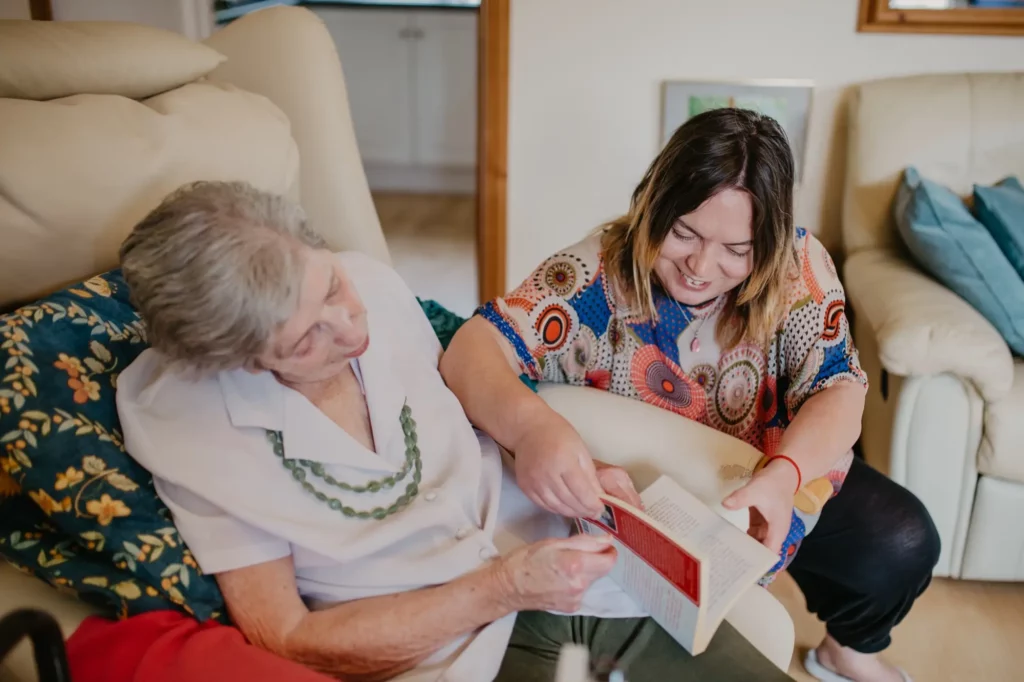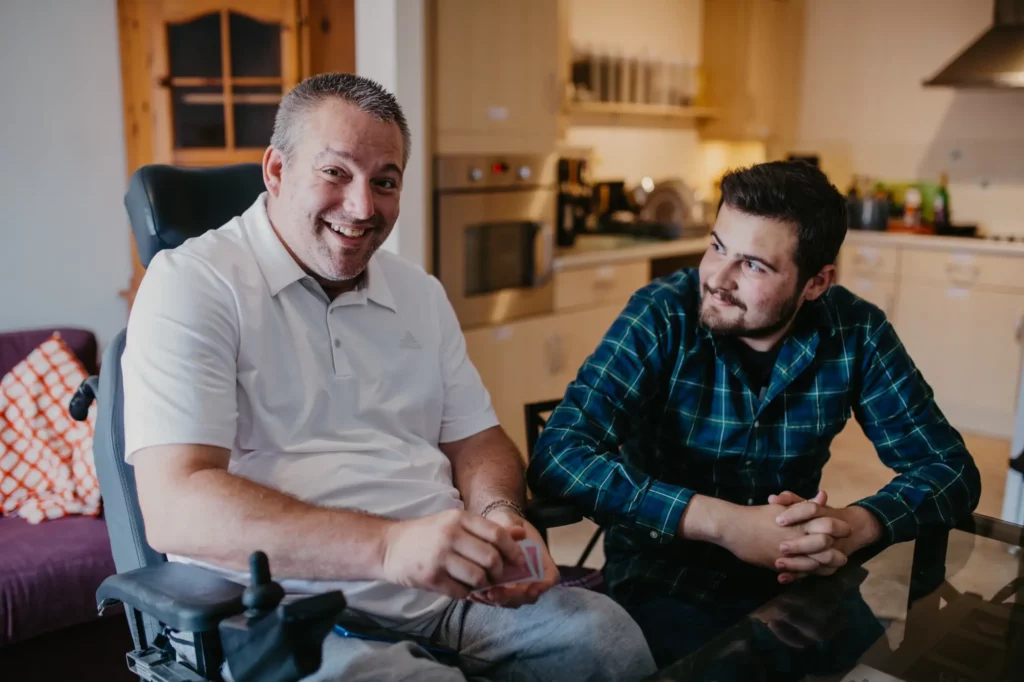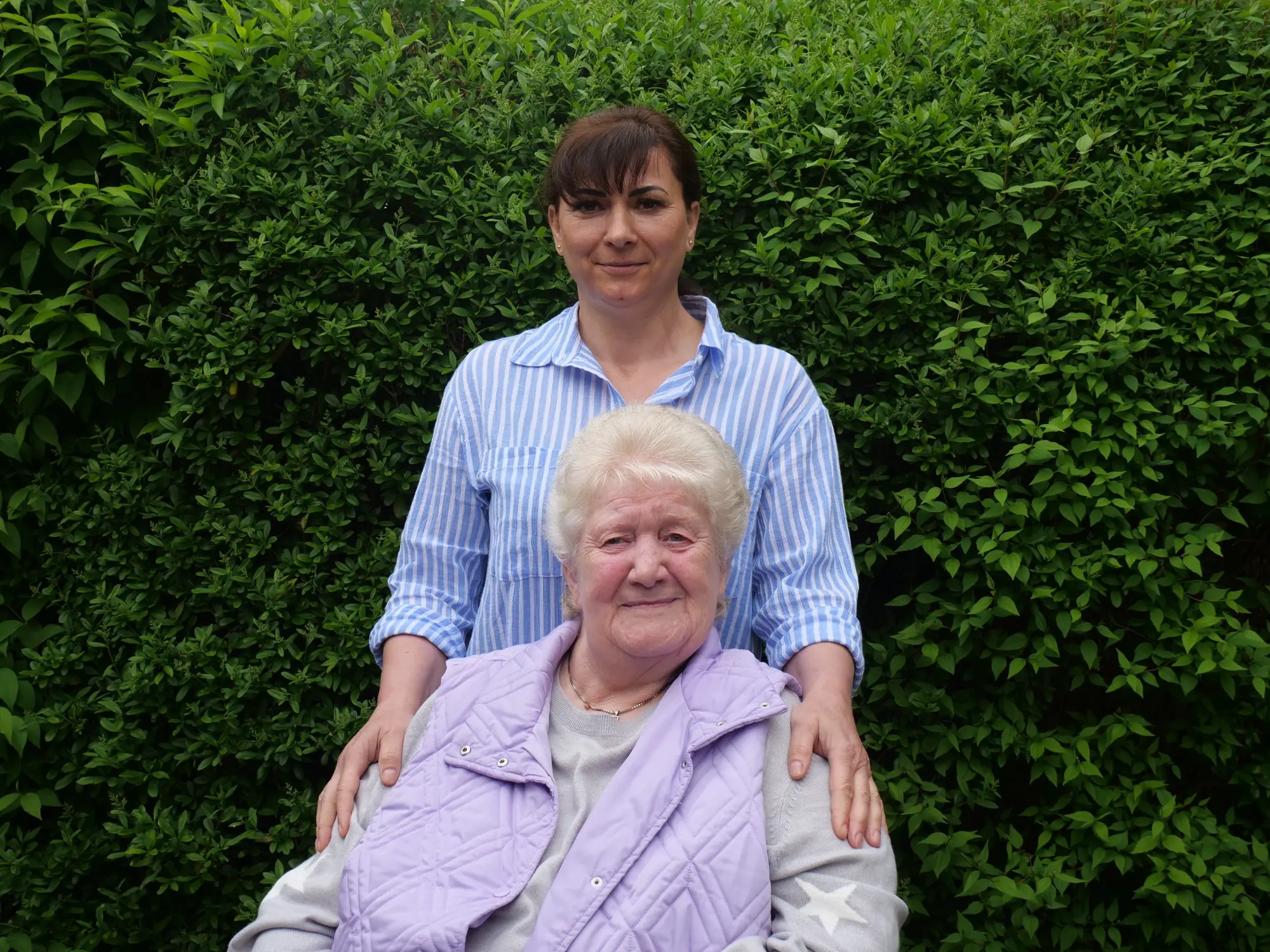We know that, when looking at live-in care as an option for yourself or a loved one, the cost of care is a significant factor. That’s why we have always been transparent about the costs of live-in care.
Our trained care workers can support a variety of needs. As a result, the costs of live-in care will vary depending on the level of support you require and is subject to a free, no-obligation care needs assessment.
To give you an understanding of how much you may be required to pay for live-in care and what level of funding may be available, we have compiled some general guidance below. For more information, contact our expert team of care advisors today. They will listen to your needs, circumstances and preferences to help you determine if live-in care is right for you.

How much does live-in care cost?
The costs of live-in care is based on your specific requirements. We offer different levels of care and base our recommendation for support on a free, no-obligation care assessment of your individual needs.

Our live-in care service starts from £695 per week depending on the level of support you require.
This cost is all-inclusive and includes a full premium service whereby your care worker is not just there to provide personal care, but to support you in living life the way you want to. This means that they are also on hand to help you with tasks not ordinarily performed by a care worker such as assisting you on days out, light gardening duties, taking care of your pets or running errands.
What’s more, unlike an introductory agency that puts you in touch with a self-employed care worker, we provide a fully managed service. We employ all of our care workers and are responsible for finding a replacement should they leave or take holiday. With our live-in care service, you also benefit from a person-centered care plan and risk assessment, as well as support from a dedicated care manager and care supervisor.

Bespoke live-in care


Fully managed service
What makes our care unique is that we fully manage it. Unlike with a care agency, which simply puts you in touch with a self-employed care worker, we have a duty of care to you. We employ and pay all of our care team and arrange for cover should they fall ill or need time away. We also guarantee that they are fully trained and perfectly matched to your needs and requirements.
Agincare’s live-in care packages includes a premium service as part of the standard offering, ensuring that your care worker is equipped to assist you across all aspects of daily life. Whether it’s tending to pet care, light gardening duties, travel arrangements, socialising, pursuing hobbies, or managing shopping and outings, your care worker is there to support you live life your way.

Live-in care vs residential care
Our live-in care service costs start from £150 per day depending on the level of support required. While a care home may appear cheaper, with fees from £950 per week, this type of care doesn’t offer the level of one-to-one support that live-in care does; nor does it allow you to remain in your own home.
What’s more, by welcoming a care worker into your home, you can continue to live life at your pace and to your schedule. This means that you can eat when you want, enjoy your usual activities and have friends and family close by and visit any time.
This cost is all-inclusive and includes a full premium service whereby your care worker is not just there to provide personal care, but to support you in living life the way you want to. This means that they are also on hand to help you with tasks not ordinarily performed by a care worker such as assisting you on days out, light gardening duties, taking care of your pets or running errands.


Paying for live-in care
There are various ways to meet the costs of care. Below we have summarised how care is often financed. Alternatively, you may be eligible for funding.
You may have sufficient savings or enough income from pensions and investments to pay for the costs of live-in care. You may also wish to speak to a financial advisor to discuss improving the income you receive from your savings and investments to help pay more of the costs.
Equity release – lifetime mortgages and home reversion plans
Lifetime mortgages
Lifetime mortgages are special types of loans, usually designed to run for the rest of your life. You continue to own your own home, and borrow money secured against its value to give you a lump sum now or a regular income. You don’t make mortgage repayments to the lender – the loan and accrued interest is repaid to the lender when you die or you move into a residential care home.
Financial advice disclaimer
The information above summarises how care is often financed. Agincare is not authorised to provide investment or other financial advice and nothing on this page should be construed as such. We recommend you obtain independent financial advice from an adviser registered with the Financial Services Authority.
Home reversion plans
Home reversion plans involve the sale of all or part of your home to a reversion company in return for a cash sum or regular income and the right to live rent-free in your home for the rest of your life. After you die, the house is sold and the value of the proportion of your home that you have sold is paid to the reversion company.


Frequently asked questions
We also provide a live-in care for couples service which supports couples in their own homes from £165 per day. This makes the cost of live in care cheaper than if a couple were to move into a care home, where they would be charged for two rooms. It also means partners don’t need to be separated, and can stay together in their home while receiving the level of care they need.
Our excellent respite care service means carers (who are often family members) can take a short break. Lasting from seven days to several weeks, it helps minimise disruption to a home routine and lifestyle. This gives carers peace of mind, knowing their family member is well cared for while they take a break from their caring responsibilities.
Our holistic high-quality and person-centred approach to care has earned us an excellent reputation. You have full control and choice over your care so it fits around your chosen lifestyle, likes and dislikes. Our excellent carers are highly-trained in conditions such as; Dementia care, Multiple Sclerosis (MS), Palliative care, Parkinson’s Disease, Stroke care, and complex care.
The cost of live-in care is determined based on an individual assessment of your needs and differ if you require specialist support.
Funding may be available from the NHS or your local council to meet all or some of the cost. State assistance for care is means-tested through a financial assessment by your local authority, taking into account the value of your property, savings and other assets (your capital).
Companionship care suits people looking mainly for companionship, but can also include help with simpler aspects of care and day-to-day living.
Personal care is suitable for people who need slightly more help, such as catheter care, or those who may have a specific care need, such as Parkinson’s, reduced mobility or dementia.
Complex care is for people needing high levels of care to help with severe stages of neurological disorders or physical incapacity. People who receive complex care from us may need hoisting or may display some challenging behaviours.
Our live-in care services cost start from £150 per day, depending on the level of need. The exact cost of care is based on a free, no-obligation assessment of your care needs.
The cost of live-in care is slightly higher than a care home. However, the advantage is that you can remain in your own home, meaning there will be no forced sale of your property and the value can increase and equity released if appropriate.
Additionally, our premium service comes with no additional fees and a premium service which supports you to remain active in your local community, visiting friends, family and neighbours.
Domiciliary care at home is when a care worker visits you in your home at set times throughout the week. The amount of visits can vary based on care needs with many people receiving one or multiple visits a day.
Home care is charged at an hourly rate and prices can vary considerably based on the level and frequency of the support required.
For those needing more consistent support, 24-hour care may be a cheaper and more beneficial option. For a lower price, you receive consistent, one-to-one support 7 days a week.
Both offer care at home however, with live-in care, you have the reassurance that support is on-hand whenever you need it.
What’s more, unlike domiciliary care which bases its fees on your current care requirements, with 24-hour care you receive a weekly rate that will not change unless there is a significant change in your needs.





